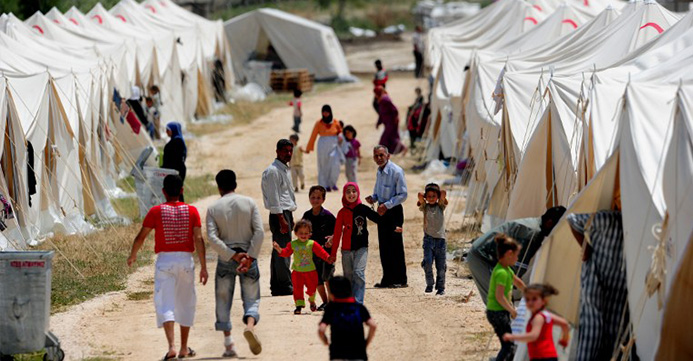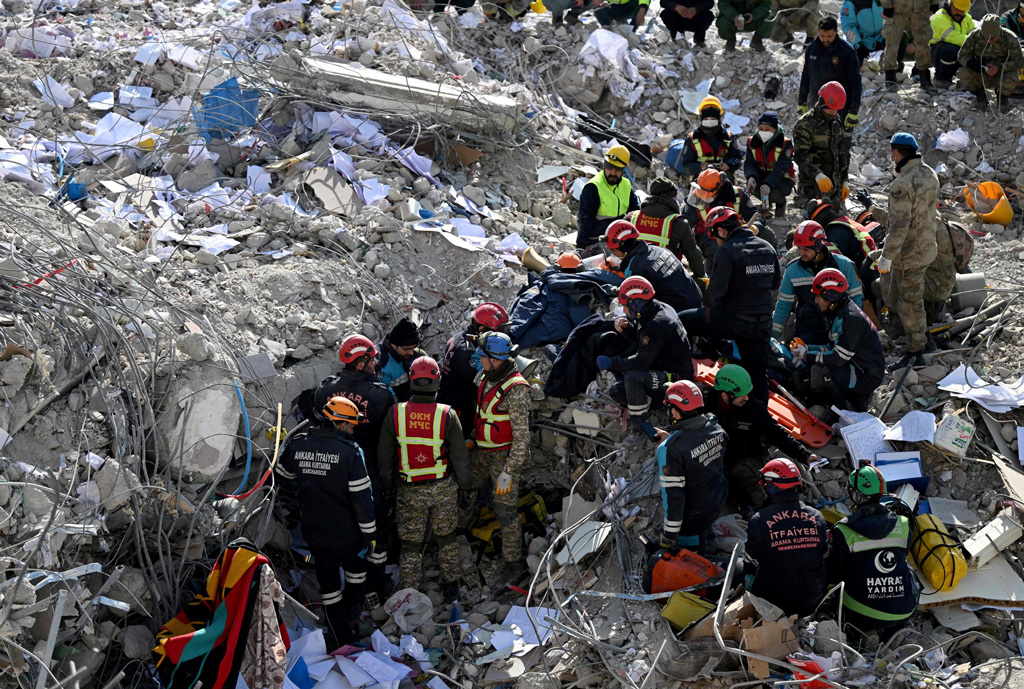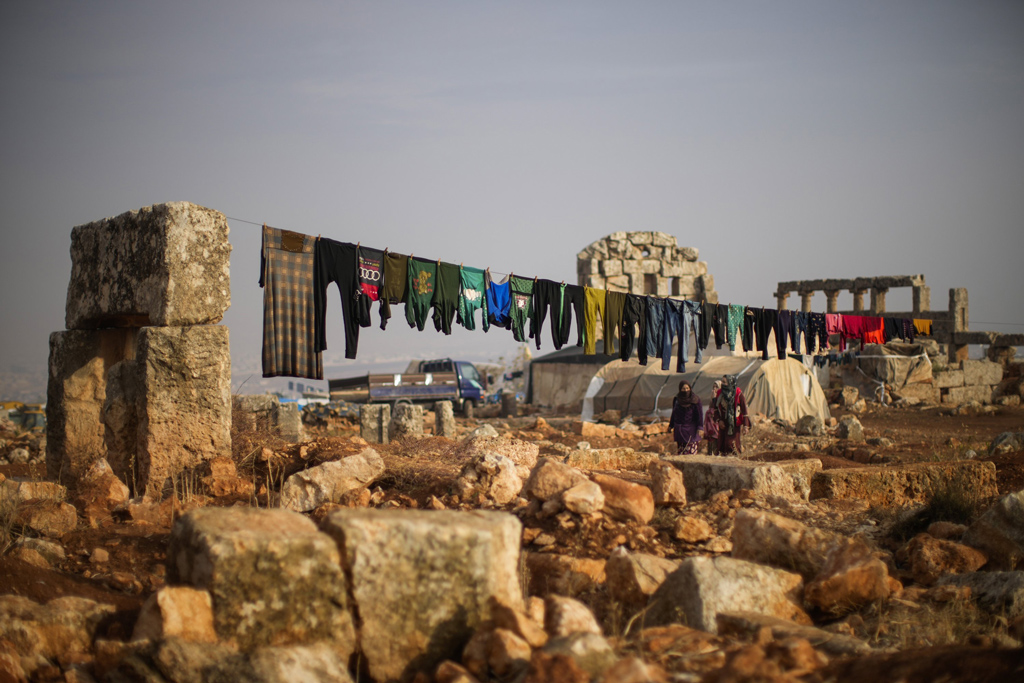Since the start of the Syrian crisis, Turkey has taken in nearly 800,000 refugees, which represents one-quarter of all Syrian refugees. With 22 camps in 10 provinces, Turkey has been enormously generous in adopting an open-door policy by admitting all Syrian refugees, giving them temporary protection status and spending $2.5 billion (TL 5.3 billion) from its own budget. Turkish refugee camps have been described as "five star," exceeding many international standards of camp conditions. Rather than relying on the United Nations High Commissioner for Refugees (UNHCR) to establish and run the refugee camps, the Prime Ministry's Disaster and Emergency Management Presidency (AFAD) is in charge of the refugee effort. The camps are staffed by Turkish employees and nongovernmental organizations (NGOs) are given supporting roles. This allows the government to maintain control over the refugee camps and simplifies the support process as different NGOs often have overlapping services. It also minimizes some of the issues associated with refugee camps, such as diversion of supplies, crime, black markets and sexual assault.
However, Turkey's current strategy of building camps to accommodate the flow of refugees is not sustainable. The camps, despite their pristine conditions, are not a permanent solution. Boredom and a lack of purpose are serious issues as camp residents are not allowed to work outside of the centers and there are few available jobs. The lack of purpose in daily life is compounded by the lack of psychological support. Nearly half of Syrian refugees think that they or a family member needs psychological assistance, and lack thereof, combined with close proximity and unemployment, could spark unrest in even the most secure camps. Furthermore, while the camps are immaculate, the health situation is deteriorating. The lack of desire to stay in the camps, combined with the inability to meet all refugee needs despite intense efforts, demonstrates that the camps are not a long-term solution to the refugee crisis.
Moreover, Turkey cannot keep up with the growing flow of refugees, which far exceeds the capacity of the camps. Of the nearly 800,000 Syrian refugees in Turkey, only 224,000 are located in camps.
In mid-2012, Turkey adopted a more managed approach for admitting refugees, which resulted in the establishment of a number of makeshift camps along the Syrian border for those waiting to receive permission to enter Turkey. In the 25 camps, there are nearly 100,000 individuals waiting to get into Turkey. While some may prefer to stay inside Syria, the camps are faced with security challenges due to their proximity to fighting in nearby cities. There are also reports that health, education and nutrition standards are low, alongside increasing criminal activity. This restrictive policy led to a growing number of refugees crossing the border illegally or utilizing smugglers, especially as Turkey closed several crossing points due to security concerns.
Those who cross through unofficial crossings without passports have no identity cards or registration and, therefore, no way of accessing services or receiving aid. In addition, many urban refugees are unable to find adequate shelter or education, making them vulnerable to exploitation and abuse, particularly women and children.
Only 23 percent of non-camp Syrian children are enrolled in school due to overcrowding, and the majority entered the workforce to assist their families. Despite Turkey's extensive efforts to help urban refugees, the government is unable to keep up with the growing needs of the most vulnerable Syrians.
The influx of refugees into border towns has burdened local communities, causing rent and home prices to skyrocket. In the Turkish provinces of Gaziantep, Şanlıurfa and Kilis, real estate prices doubled and rents have increased three-fold from two years ago. The number of refugees also caused a rise in consumer prices, especially food prices, causing above-average inflation. Furthermore, Syrians forced to work il







